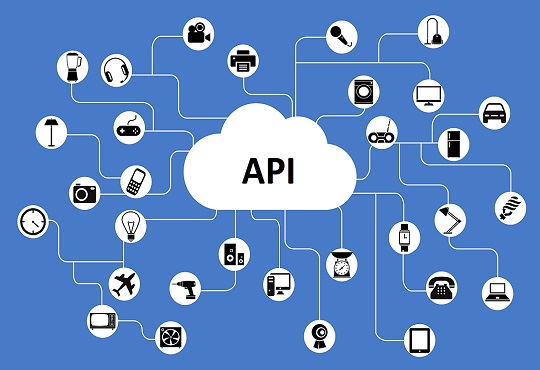How Important Is API Strategy For MSEs
Janifha Evangeline | Saturday, 20 November 2021, 06:14 IST

APIs are foundational owing to their functionality of linking together the individual systems which contain data about businesses, people, and things in order to derive value from that data. CIOs of Midsize enterprises (MSE) must not look at APIs only as a technology but they should view it as the foundation of their organization’s business models as well as digital strategies.
Connections to e-commerce marketplaces, suppliers, sellers, and SaaS services primarily involve the implementation of APIs and Midsize enterprises begin to implement APIs when they integrate other software solutions with their ERP systems.
In order to renovate their integration approach, support their business model transformation as well as plan & implement their API strategy, the CIOs of Midsize enterprises have to work in collaboration with business executives.
The major role of APIs in the enterprise needs businesses to plan their API development and management efforts, intelligently rather than simply creating and releasing an API or adopt an outside API – and hope for the best. Also, Comprehensive API management facilitates in addressing the requirements of applications, developers, users, as well as the business in a cohesive manner.
Simple execution of complex interactions
While businesses today run on software that has to interoperate with numerous other software platforms, how can a business provide its valuable data as well as computing capabilities to countless potential users without disclosing the source code and collaborating with innumerable contributors?
The application programming interface or in short known as API defines the available interactions among pieces of separate as well as distinct software in order to request and present services, all without them actually knowing anything about the other, where this layer of abstraction facilitates simple execution of complex interactions.
"The goal of the API Testing is to test the Business Logic Layer of the application thoroughly, inspect the response, latency in various conditions and various loads," says R Chandrashekar, Ex - SVP Engineering and Technology, Teamlease Services Limited.
Let us take an example of a restaurant. In a restaurant, diners communicate with the waitstaff. They order from a menu and then have their meals, provided by the restaurant. However, diners have no idea of how the orders are prepared, how the kitchen functions, or any other intricate tasks that occur throughout the restaurant.
In the above example, the waitstaff & the menu are the APIs. The menu displays/defines the available choices while the waitstaff interacts/communicates and delivers those choices along with payment handling.
A well-developed enterprise API dictates the quality, scope as well as security of the provider’s communication/interaction with the end-users, like how a well-designed food menu and attentive waitstaff enhance the dining experience.
Efficient API Management for midsize businesses
While API Management comes in various shapes, forms, and sizes for large as well as small businesses, what is that you need to know for efficient API Management for midsize businesses?
According to a recent report – ‘API Strategy for Midsize Enterprise,’ by Gartner, “Most midsize enterprise CEOs name growth among their top three priorities. To help their organizations achieve that growth and create “business moments,” midsize enterprise CIOs must help their organizations exploit new business models. An API strategy is a pre-requisite.”
The 2020 Gartner Ecosystem Survey depicts that CIOs do not have a consistent understanding of digital ecosystems that is the basic foundation of an API strategy, where fifty-six percent of respondents consider these ecosystems to be transactional while forty-four percent believe they have strategic value.
An effective API strategy encloses 2 main aspects such as application integration and integration to digital ecosystems in order to support new digital business models. APIs are an essential and significant building block of Midsize Enterprise CIOs’ application strategy which includes integration of dashboards, low-code app development & mobile apps development. Midsize Enterprise CIOs have to realize that APIs are at the heart of the digital business and consequently at the center of the digitalization process.
Challenges
The challenge faced by Midsize Enterprises is that fifty-three percent of these enterprises are still not delivering digital initiatives and therefore they risk their competitiveness by neither intercepting nor creating digital “business moments” and developing new business models that digital business facilitates.
API management should address a few key business issues such as:
- Is the API providing the features as well as the functionality which applications and users require?
- How are the API’s release and future development controlled by the business?
API-first strategy
API strategies will only work when you scale it and MidSize enterprise CIOs may help their organizations scale in order to meet the demands of digital business. This can be achieved by creating an API-first strategy, which ensures data as well as functions that are not held captive in their applications.
CIOs of MidSize enterprises must see APIs not as just technology but also as the foundation of their organization’s business models and digital strategies.
As APIs also facilitate new channels, they enable MidSize enterprises to differentiate and build advantages despite their smaller scale. Furthermore, APIs enable MidSize enterprises to connect more effectively with customers, and partners and by enhancing experiences as well as enabling execution on a much wider scale other than what their internal capabilities alone would allow.




.jpg)